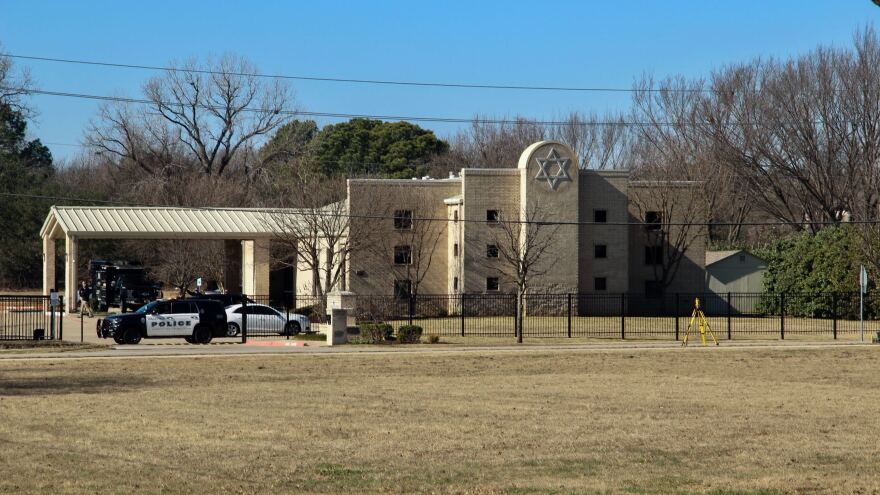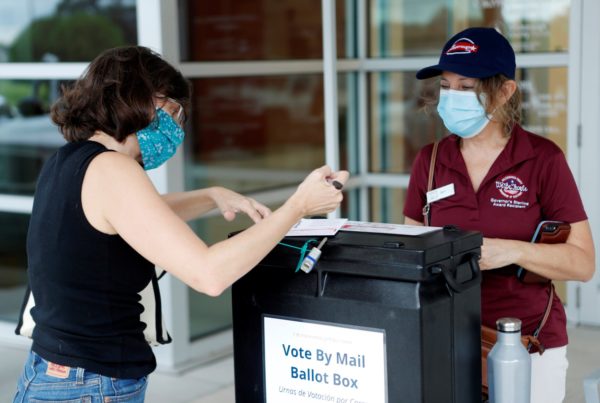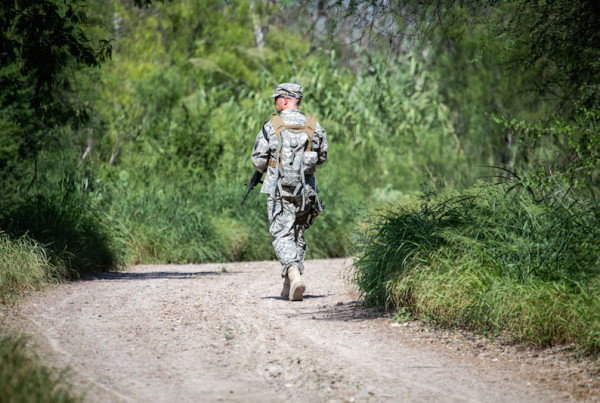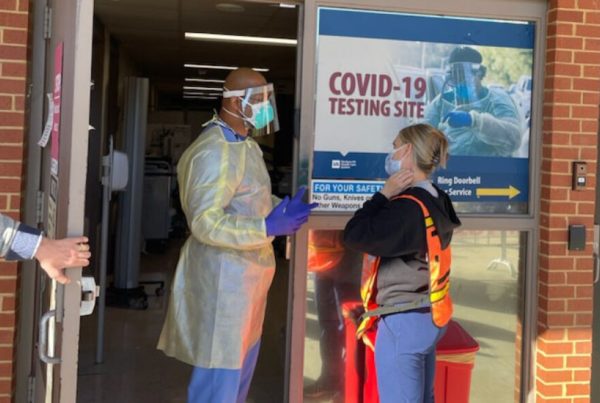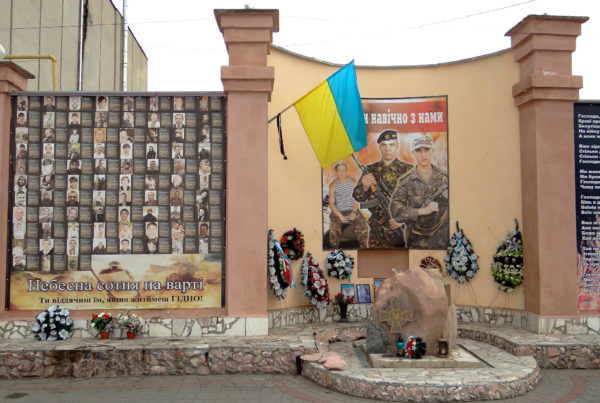Rabbi Charlie Cytron-Walker, the leader of the synagogue and one of the hostages, said in a statement on Sunday that his congregation has been prepared for this kind of incident.
“Over the years, my congregation and I have participated in multiple security courses from the Colleyville Police Department, the FBI, the Anti-Defamation League, and Secure Community Network,” Cytron-Walker said. “We are alive today because of that education. I encourage all Jewish congregations, religious groups, schools, and others to participate in active-shooter and security courses.”
Four people spent hours trapped inside the Colleyville synagogue, after a gunman entered the synagogue during Shabbat services. The FBI has identified the suspect as Malik Faisal Akram, a 44-year-old man from the United Kingdom.
An FBI team freed the hostages and Akram died. Authorities have not specified his cause of death.
Congregation Beth Israel president Michael Finfer said there was “a one in a million chance” that the gunman picked his small suburban synagogue in Colleyville.
“We know that a situation of this magnitude could increase the concern many of us live with on a day-to-day basis due to antisemitism,” Finfer said. “It is important to note that this was a random act of violence.”
Still, the hostage situation comes during a time that has many Jewish institutions thinking about their security. Antisemitic incidents have been reported at historically high levels in recent years, according to the Anti-Defamation League.
The deadliest antisemitic attack in American history was in 2018, when a gunman killed 11 people at the Tree of Life synagogue in Pittsburgh.
Since the Pittsburgh attack, 56% of respondents to a 2020 survey from the American Jewish Committee said the Jewish institutions they go to have increased security.
That percentage is probably higher now, said Holly Huffnagle, the AJC’s U.S. Director for Combating Antisemitism.
Akram’s motives at Congregation Beth Israel are still unclear. But antisemitism has motivated violent attacks for a very long time in the United States.
Matthew DeSarno, the special agent in charge of the FBI’s Dallas office, said Saturday night that Akram appeared to be “singularly focused on one issue and it was not specifically related to the Jewish community.”
News reports indicated that Akram was upset over the imprisonment of a Pakistani woman who was convicted of terrorism charges.
DeSarno said investigators are “continuing to work to find motive and we will continue on that path.”
Regardless of the suspect’s intentions, Huffnagle said, he still decided to make his statement in a synagogue.
“It wasn’t a government office. It wasn’t another house of worship by a different faith community. It was targeting Jews,” she said.
The Anti-Defamation League has documented many antisemitic incidents across Texas over the past year.
Austin’s Congregation Beth Israel synagogue, which bears the same name as the synagogue in Colleyville, was the target of arson fire set on Oct. 31.
The fire was set at the entry of the synagogue. Authorities later arrested an 18-year-old college student and charged him with 1st-degree felony arson. A “Kill them all” sticker adorned with swastikas reportedly was found in his car, as well as ingredients for Molotov cocktails.
Other incidents include the discovery of antisemitic fliers outside northwest Austin homes on December 19 that blamed Jews for COVID-19 and promoted the “Goyim Defense League” – described by the ADL “a group of antisemitic provocateurs.”
Residents of Missouri City found antisemitic flyers left in driveways their homes on Dec. 1. Students at Austin’s Anderson High School discovered antisemitic and homophobic graffiti on the school parking lot in October.
The same month, antisemitic fliers showed up in several neighborhoods in Hays County. And ADL reported that “as part of their antisemitic ‘Name the Nose Tour’ in Texas, members of the Goyim Defense League… held a flash demonstration outside the Austin Police Department” and protested outside a Jewish community center in San Antonio “with a banner that read: ‘Honk if you know the Holocaust is Fake.’”
The Goyim Defense League also was accused of distributing antisemitic propaganda in San Antonio neighborhoods in October, protesting outside a San Antonio church holding a fundraiser for Israel, and hanging a banner on an overpass near the Shalom Austin Jewish Community Center in Austin that read “Vax the Jews.”
The ADL reported that “14 first,” which it described as a neo-Nazi group, distributed antisemitic literature calling for a “white revolution” in Midland last February. And on Jan. 18 last year – the Martin Luther King Jr. Holiday – the same group distributed propaganda in a residential neighborhood of Abilene that included an image of a swastika and messages attacking President-elect Joe Biden and Martin Luther King, Jr.,” according to the ADL.
Got a tip? Email Miranda Suarez at msuarez@kera.org. You can follow Miranda on Twitter @MirandaRSuarez.


